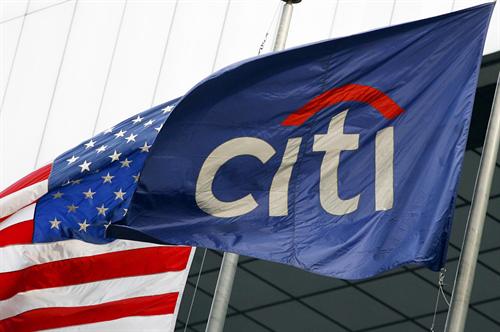American Express (AmEx) has been cited in Business Week as a prime example of the new breed of stateless corporation pioneering a borderless future in which ‘open markets, deregulation and unimpeded flow of capital’ is the norm. Nevertheless, AmEx, the stateless corporation, found it convenient to identify its interests with the US national interests when it came to lobbying US policy makers and negotiators.
 During the 1970s AmEx was facing saturation of its markets at home, as well as increasing competition from other companies offering credit cards, and needed to expand to new countries in order to grow. Overseas markets were turning out to be extremely lucrative and AmEx targeted the most affluent customers in each country and was able to underprice European companies by supplying only the most profitable elites.
During the 1970s AmEx was facing saturation of its markets at home, as well as increasing competition from other companies offering credit cards, and needed to expand to new countries in order to grow. Overseas markets were turning out to be extremely lucrative and AmEx targeted the most affluent customers in each country and was able to underprice European companies by supplying only the most profitable elites.
However AmEx was having trouble accessing markets in some countries and it believed that the GATT negotiations might provide a solution. In 1979 the CEO of AmEx, James D. Robinson III, asked AmEx vice president Harry Freeman to get a new round of GATT negotiations started that would include services. When Freeman asked what budget limitations there were Robinson responded ‘Don’t worry about money. This is so important, you will have an unlimited budget.’
With so much money at his disposal Freeman was able to have dedicated staff in Brussels, Tokyo, Washington, New York and elsewhere. AmEx had clout not only because it was a ‘corporate superpower’, but because its board included some political heavyweights, including Henry Kissinger, Vernon Jordan and Drew Lewis with Gerald Ford, former president, as an ‘outside  advisor’. AmEx ‘enlisted the aid’ of Citicorp and American International Group (AIG) and the CEOs of these three financial corporations went to ministerial meetings through the early 1980s until the Uruguay Round of negotiations started in 1986.
advisor’. AmEx ‘enlisted the aid’ of Citicorp and American International Group (AIG) and the CEOs of these three financial corporations went to ministerial meetings through the early 1980s until the Uruguay Round of negotiations started in 1986.
These corporations were particularly interested in having ‘financial services’ included in a trade agreement. Freeman and executives from Citicorp and AIG formed a broad coalition of service sector corporations as ‘allies’, including non-financial service companies, to better influence Congress. Until this point corporate executives in fields as diverse as entertainment, engineering, transportation and finance did not identify as ‘part of a coherent ‘services’ sector with common interests’.
Freeman described how:
The first thing we did in 1979 was to coin the phrase. You will not see the term ‘financial services’ before 1979. We did that by asking everybody in the company to talk about financial services particularly with the media, and in about two years the term financial services was part of the lexicon…. We were quite successful in the Uruguay Round in defining financial services as ‘any service of a financial nature’. This allowed us to have more and more allies, and you have to take care of your allies.
 Freeman also promoted the phrase ‘goods and services’ by getting his staff to write to journalists who used the term ‘goods’ to tell them they had missed out the term ‘services’. In the early 1980s, he claims they wrote at least 1,600 such letters and in this way succeeded in getting the phrase ‘goods and services’ widely adopted. Getting acceptance of the phrase ‘trade in services’ was more difficult because it was not immediately apparent what it meant, particularly with respect to banks. Most people do not see the establishment of a foreign bank in a country as trade in the sense of export and import.
Freeman also promoted the phrase ‘goods and services’ by getting his staff to write to journalists who used the term ‘goods’ to tell them they had missed out the term ‘services’. In the early 1980s, he claims they wrote at least 1,600 such letters and in this way succeeded in getting the phrase ‘goods and services’ widely adopted. Getting acceptance of the phrase ‘trade in services’ was more difficult because it was not immediately apparent what it meant, particularly with respect to banks. Most people do not see the establishment of a foreign bank in a country as trade in the sense of export and import.
 AmEx CEO Robinson also became a leading advocate of free trade in his own right. He was appointed as chair of President Bush’s influential Advisory Committee on Trade Policy and Negotiations (ACTPN) in 1987 and in that role he oversaw US GATT negotiations. This committee was comprised of up to 45 people from a range of sectors, including business, labour and agriculture and advised the US Trade Representative directly.
AmEx CEO Robinson also became a leading advocate of free trade in his own right. He was appointed as chair of President Bush’s influential Advisory Committee on Trade Policy and Negotiations (ACTPN) in 1987 and in that role he oversaw US GATT negotiations. This committee was comprised of up to 45 people from a range of sectors, including business, labour and agriculture and advised the US Trade Representative directly.
Indicative of the company’s farsightedness, Robinson even achieved acclaim as an early proponent of Third World debt relief, propounding the ‘Robinson Rollover’ plan… Key to its fiscal clemency is the requirement that Third World governments expose their economies and populations to market discipline according to stringent restructuring formulas.
As well as overseeing US GATT negotiations Robinson was a corporate member of the Multilateral Trade Negotiations (MTN) Coalition, ‘the leading pressure group on GATT’ (see previous chapter). MTN’s executive director was none other than Harry Freeman, who left Am Ex under a cloud when it was alleged that he was part of a campaign to discredit Swiss banker Edmond Safra, a rival to AmEx. Although Freeman took the fall for the smear campaign he remained close to AmEx and continued his work on liberalizing financial services and lobbying government to support GATT.